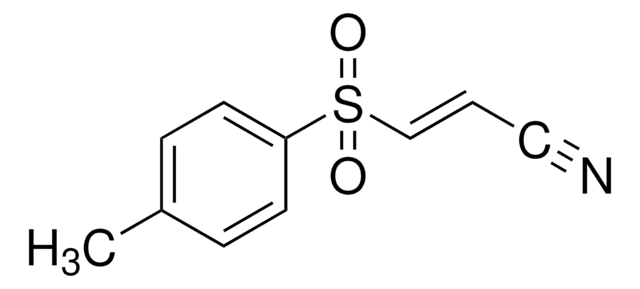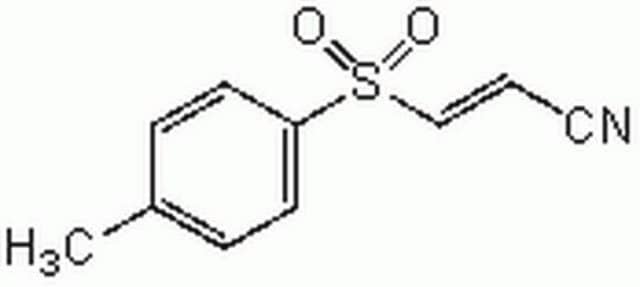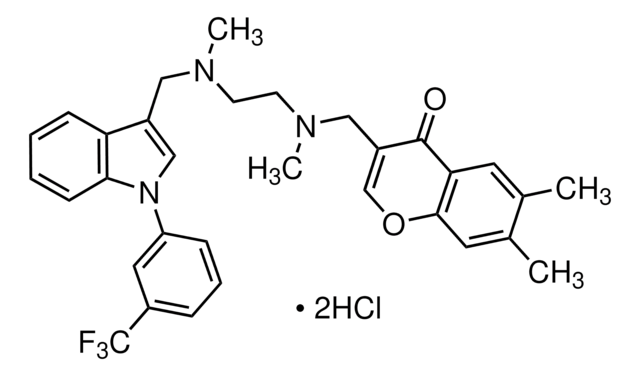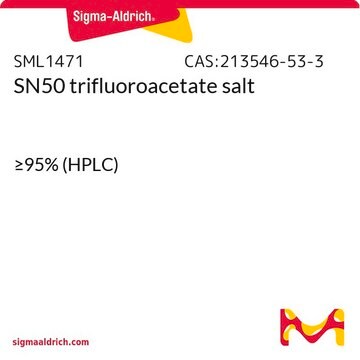J4455
JSH-23
≥98% (HPLC), solid
Sinónimos:
4-methyl-N1-(3-phenylpropyl)-1,2-benzenediamine
About This Item
Productos recomendados
Quality Level
assay
≥98% (HPLC)
form
solid
storage condition
protect from light
color
off-white to gray-pink
solubility
DMSO: >10 mg/mL
shipped in
wet ice
storage temp.
−20°C
InChI
1S/C16H20N2/c1-13-9-10-16(15(17)12-13)18-11-5-8-14-6-3-2-4-7-14/h2-4,6-7,9-10,12,18H,5,8,11,17H2,1H3
InChI key
YMFNPBSZFWXMAD-UHFFFAOYSA-N
Application
Biochem/physiol Actions
Other Notes
Storage Class
11 - Combustible Solids
wgk_germany
WGK 3
Certificados de análisis (COA)
Busque Certificados de análisis (COA) introduciendo el número de lote del producto. Los números de lote se encuentran en la etiqueta del producto después de las palabras «Lot» o «Batch»
¿Ya tiene este producto?
Encuentre la documentación para los productos que ha comprado recientemente en la Biblioteca de documentos.
Los clientes también vieron
Nuestro equipo de científicos tiene experiencia en todas las áreas de investigación: Ciencias de la vida, Ciencia de los materiales, Síntesis química, Cromatografía, Analítica y muchas otras.
Póngase en contacto con el Servicio técnico














